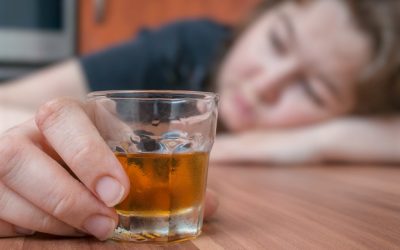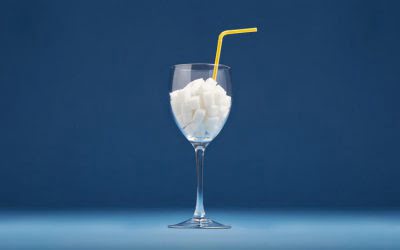Professional treatments and support can help you overcome alcohol misuse and alcohol use disorder and improve your overall health and well-being. If you’re experiencing symptoms of anxiety or having frequent anxiety attacks, seeing a healthcare provider to learn more about your condition and diagnose you properly can help. Your provider can offer several treatment options and recommend prevention tactics to reduce your symptoms more effectively. However, if you’re having anxiety attacks frequently, getting support from a mental healthcare provider and practicing mindfulness can improve your quality of life.
How to Get Help With Alcohol Withdrawal Symptoms
The answer to whether quitting alcohol can cause a first panic attack is hard to determine. However, research has revealed that there is a link between alcohol use disorders and the diagnosis of coexisting anxiety disorders of all types. While experiencing a panic attack might not be directly caused by quitting alcohol, it could indicate that your drinking habits were masking an underlying mental disorder. Stopping drinking can also cause you to experience some emotional withdrawal symptoms. You might notice that you feel more anxiety than normal, which can often feel like a panic attack is occurring.
Is Anxiety Associated with Alcohol Tolerance and Dependence?
- Most panic attacks peak within about 10 minutes, but they can have strong symptoms that include heart palpitations, shortness of breath and an intense sense of impending doom.
- Anxiety can take over your whole body, causing a series of both emotional and physical symptoms.
- Eating plenty of healthy, nutrient-rich foods during alcohol detox is important to keep the body functioning normally and help alleviate anxiety and alcohol withdrawal panic attacks.
Delirium tremens (DTs) is a serious side effect of alcohol withdrawal syndrome that shares similar symptoms to anxiety. People affected by alcohol withdrawal anxiety may feel symptoms such as dread, rapid breathing, disorganized thinking, restlessness, and nervousness. Symptoms include chest tightness, rapid heart rate, numbness or tingling, hand tremors, and fear of impending death.
- In fact, alcohol’s effects can be similar to those of antianxiety medications.
- He stated that he would not drink again whatever happened but that he needed help for this new intolerable situation.
- As a result, the best way to prevent panic attacks after drinking is to know your limits and avoid drinking to excess.
- Rather than two distinct conditions, each requiring a cause, negative affect and alcohol misuse may be parts of a single, neurobiological-behavioral syndrome.
- Studies have shown a different trend of alcohol use in people who are diagnosed with generalized anxiety disorder or panic disorder.
- If you reach for alcohol in an effort to avoid experiencing a panic attack or feelings of anxiety, you can quickly become trapped in a debilitating cycle that becomes very difficult to break.
- A 2018 study of United States adults aged 18 to 39 years found that 8.8% of young adults had at least one heart attack risk factor.
Panic attacks and panic disorder
Excessive (binge) drinking is defined as four or more drinks on a single occasion for women and five or more drinks on a single occasion for men. The information contained on this page and in any third party websites referred to on this page is not intended nor implied to be a substitute for professional medical advice nor is it intended to be for medical diagnosis or treatment. Third party https://thechigacoguide.com/top-5-advantages-of-staying-in-a-sober-living-house/ websites are not owned or controlled by Bupa and any individual may be able to access and post messages on them. Bupa is not responsible for the content or availability of these third party websites. If you are worried about your drinking and don’t feel you can stop, you should seek professional advice or speak to a telephone helpline such as Alcoholics Anonymous or The Samaritans.
Are some types of alcohol worse for anxiety?
Over time, this imbalance triggers chronic gastrointestinal inflammation, leading to a higher risk of gastrointestinal diseases. The liver metabolizes most of the alcohol you consume, breaking it down into acetaldehyde. Acetaldehyde is a toxin that can damage the body’s organs and tissues before it is further broken down into acetate. Years of moderate to heavy drinking can cause liver scarring (fibrosis), increasing the risk of liver diseases like cirrhosis, alcoholic hepatitis, fatty liver disease, and liver cancer.
A central prediction of this causal model is that abstinence from alcohol should be followed closely by a conspicuous decrement in anxiety symptoms. Data from a study of 53 patients who participated in alcohol treatment at a residential substance abuse program were consistent with this prediction (Kushner et al. 2005). Thus, among those 23 patients who had an anxiety disorder at baseline and remained abstinent after approximately 120 days, 61 percent no longer met criteria for an anxiety disorder at follow-up. Another study with 171 male veterans demonstrated that self-reported measures of temporary anxiety (i.e., state anxiety) decreased rapidly during inpatient alcohol treatment (Brown et al. 1991).
How to Deal with Stress without Alcohol
If you’re someone who is prone to panic attacks when there is no obvious external trigger, dealing with the stress of mistakes can make having one more likely. This is especially true when coupled with the physiological symptoms of drinking. Alcohol use can cause new onset anxiety and worsen pre-existing anxiety symptoms.
- Instead, so-called third variables are posited to account for their joint presence.
- Understanding the signs of a panic attack and learning coping strategies can help you manage a difficult episode.
- When you have anxiety and an alcohol use disorder at the same time, you may be able to treat them simultaneously.
- Some believe that alcoholic drinks with a high sugar content may lead to worse hangovers and that “lighter” alcohols — for example, vodka, gin, or white wine — are better for hangovers than “darker” alcohols such as whiskey, dark beer, and red wine.
It’s also possible for chronic alcohol use to contribute to existing anxiety or lead you to develop an anxiety disorder. The withdrawal period normally peaks 72 hours after the blood alcohol level Top 5 Advantages of Staying in a Sober Living House drops. In fact, drinking can change the chemistry of the brain in a way that actually makes anxiety worse. Knowing how alcohol affects anxiety may make it less tempting to have a drink to cope.

